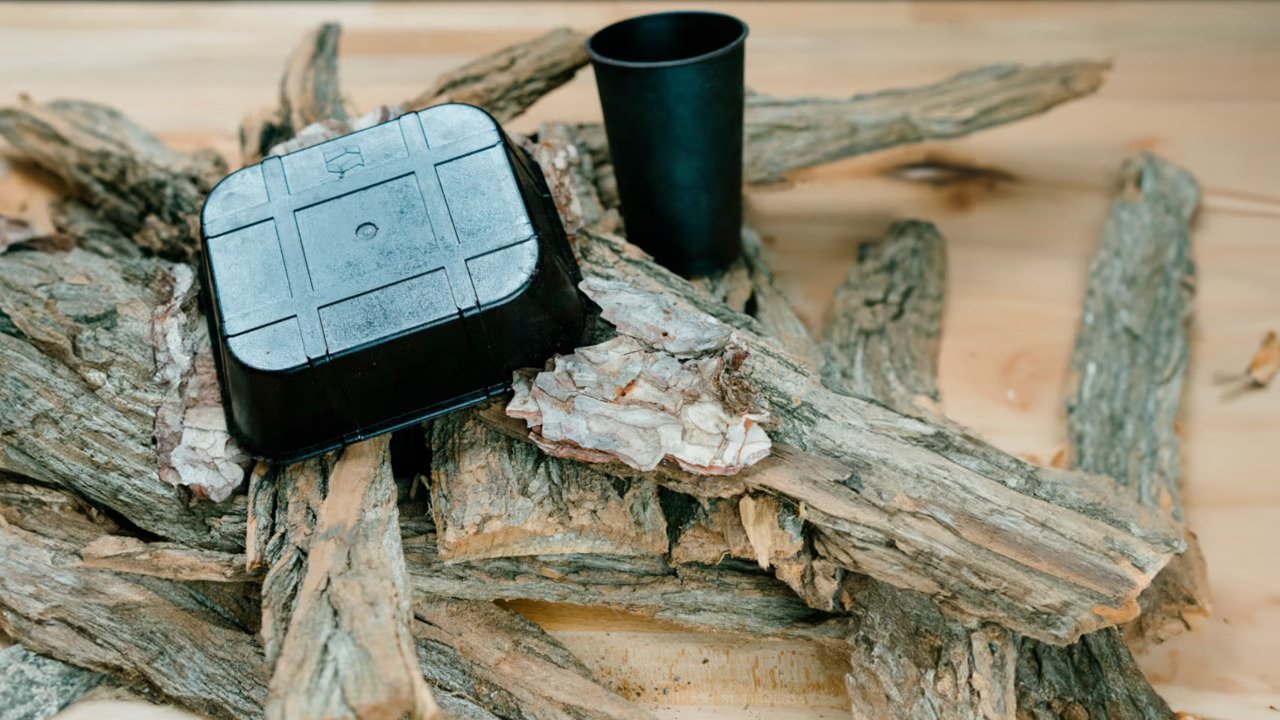We're literally drowning in a sea of plastic. While efforts are made to reduce the reliance on single use plastic, it relies on scalable solutions at a comparable price point. But now UK company Bpacks has found a way forward with sustainable packaging made from bark.
Bpacks is a circular economy startup that has developed the world's first bark packaging technology, which integrates easily into existing production streams. Bark-based materials are fully compatible with current equipment for plastic packaging production, facilitating the shift to eco-packaging.
The startup is crafting packaging that is 100 per cent bio-based, with up to 75 per cent of materials sourced from production waste.
I spoke to Lev Bolshakov, co-founder and COO of Bpacks and Aleksandra Nešić. Head of Innovations to find out more.
Nešić explained that full-cycle Bpacks' 300 square metres R&D centre, which is based in Belgrade, Serbia, enables the production of both finished packaging and granules as substitutes for plastic pellets.
The bark-based pellets' production process closely resembles that of polymers and doesn't require capital investments to begin molding, since the manufacturing process mirrors that of plastic production.
The Bpacks' production process starts with compounding, followed by the creation of pellets or sheets, and concludes with the casting of solid packaging, which takes place either by injection molding or thermoforming techniques. The material should fully decompose in moist soil within one to two months.
Nowadays, the most common biodegradable polymers, such as PLA (polylactic acid) and PHA (polyhydroxyalkanoate), are made from carbohydrate-rich plants like corn and sugarcane. Plants are typically grown and harvested specifically as feedstocks from bioplastic products.
This diverts land and resources such as soil and water away from growing plants to eat. Further, corn plastic will only break down in a commercial composting facility with a hot and humid environment and sugarcane bioplastics are not entirely biodegradable and compostable.
By comparison, bark-based material turns into compost within a week in an active environment and enriches the compost with valuable nutrients.
Further, by utilising bark, a sidestream of wood production, as its primary raw material, Bpacks ensures that forest resources are not further strained.
With estimated bark production levels between 300 and 400 million m3 annually, the startup leverages this abundant resource to create environmentally friendly packaging solutions.
Furthermore, studies have highlighted the antimicrobial potential of bark extracts from various tree species. These extracts enhance the functionality of Bpacks' technology, which emits up to six times fewer CO2 emissions than traditional plastic production methods.
As a sidestream, forest waste is also being used by startups to make natural biochemicals, pulp-based cellulose, edible fats and oils. Its status as a living ingredient means it also has the potential to extend the life of the products which it packages according to Nešić.
The company has captured the interest of plastic polymer packaging manufacturers as the EU's packaging and packing waste directive aims to make packaging used in the EU safer and more sustainable by requiring all packaging to be recyclable, minimising the presence of harmful substances, reducing unnecessary packaging, boosting the uptake of recycled content and improving collection and recycling.
The agreement sets packaging reduction targets (5 per cent by 2030, 10 per cent by 2035 and 15 per cent by 2040) and requires EU countries to reduce, in particular, the amount of plastic packaging waste packaging.
The company is currently working on patenting its tech. According to Bolshakov:
"Once we finalise our patent, we plan to bolster our commercial efforts by expanding our production line." This creates the potential to white label the tech to plastic manufacturers or expand Bpack's own facilities."
Lead image: Bpacks. Photo: uncredited.



Would you like to write the first comment?
Login to post comments